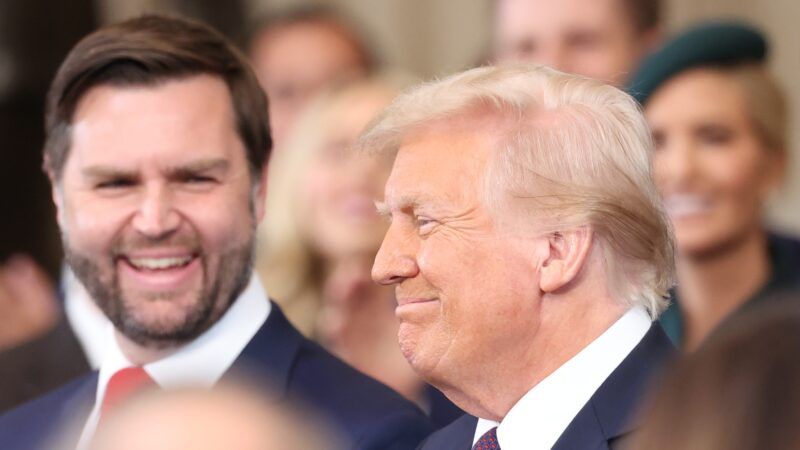Trump's 'External Revenue Service' Is a Public Relations Effort. It Won't Change How Tariffs Work.
Trump promises to "tariff and tax foreign countries to enrich our citizens." That's not how it works.

Moments after taking office for the second time, President Donald Trump vowed to "tariff and tax foreign countries to enrich our citizens."
Alas, that's not how it works.
Trump's second inaugural address, delivered Monday afternoon from the cozy confines of the U.S. Capitol's rotunda, promised a "golden age of America" and included Trump's oft-repeated campaign trail promise to no longer allow America to be "taken advantage of." As was the case during his first term, Trump sees trade policy as a key tool in accomplishing those goals.
Unfortunately, he's still wrong about how tariffs work. Any new tariffs imposed by the incoming Trump administration will function the same way as every other tariff: It will drain wealth from American consumers and businesses to enrich the U.S. Treasury. That's what tax increases do, even when they are proposed by a Republican president and cheered by a crowd of Republican lawmakers, donors, and administration officials.
Indeed, study after study after study has found that the tariffs Trump levied during his first tenure were paid nearly entirely by American consumers and businesses. The U.S. International Trade Commission concluded in 2023 that American companies and consumers "bore nearly the full cost of these tariffs because import prices increased at the same rate as the tariffs." That matches what economists warned would happen, and there's not much room for debate about these facts. In theory and practice, tariffs are paid by Americans.
The big change Trump is proposing this time around is the creation of a new "External Revenue Service" that will collect tariff revenue. The exact contours of that new agency are still unclear, but it is probably best thought of as a public relations maneuver rather than a meaningful policy change. After all, there's already a governmental entity that handles tariff collection—that's the "customs" in U.S. Customs and Border Protection. Changing the name won't change anything about the transactions that occur.
More than anything else, the creation of an "ERS" suggests that Trump (or his advisors, at least) has recognized the need to more aggressively sell the false idea that foreign companies or countries are somehow paying the tariffs.
That's also apparent in what Peter Navarro, Trump's longtime advisor on trade policy, told reporters on Monday morning: "Tariffs are tax cuts for the American people." That's no more true than Navarro's promise that no country would retaliate against Trump's tariffs during his first term—but, again, it points to a different messaging strategy this time around. Americans like tax cuts, the Trump administration has figured out, so why not pretend that tariffs are tax cuts, even when they are exactly the opposite?
There is, in fairness, a policy angle to this maneuver too. As Congress debates the coming expiration of the income tax cuts that Trump signed in 2017, the Trump administration is pushing to use tariff revenue to offset an extension of those tax cuts. It's not clear that Congress will go along with that scheme—but even if it does, that's more of a tax shift than a tax cut.
As for the tariffs themselves, there are some indications that Trump might be backing down from his campaign trail promise to slap 20 percent import taxes on all goods brought into the country. The Wall Street Journal reported Monday morning that Trump "plans to issue a memo directing federal agencies to evaluate trade policies and economic relationships with China and North American neighbors," but that he will not issue any new tariffs on his first day in office.
One can only hope that those evaluations will be economically sound and that Trump will take seriously their findings. Otherwise, Americans will be staring down the barrel of a massive tax increase. The Tax Foundation estimates that a 10 percent global tariff would increase taxes on American households by $1,253 annually and a 20 percent global tariff would increase those taxes by $2,045 annually. Meanwhile, the Congressional Budget Office estimates that Trump's plans would cost $2.7 trillion over 10 years and reduce the country's economic output.
And those taxes would be overwhelmingly paid by Americans, no matter what the president claims.


Show Comments (13)